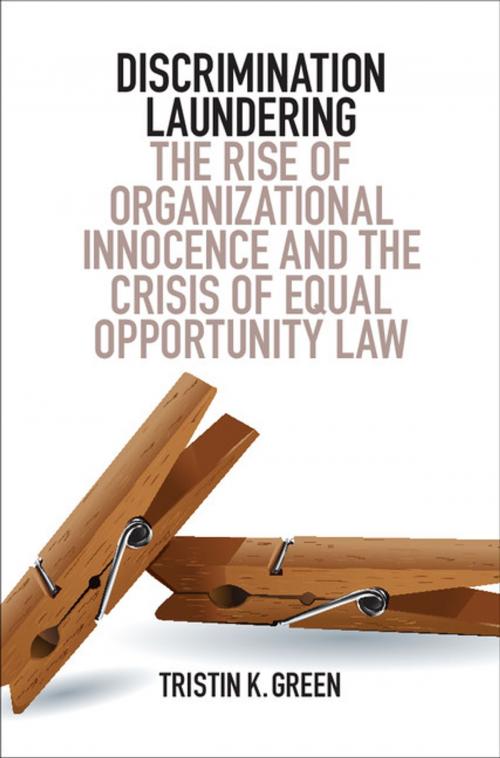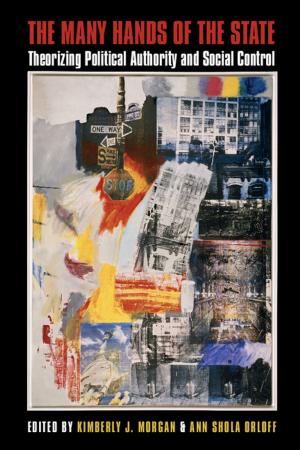Discrimination Laundering
The Rise of Organizational Innocence and the Crisis of Equal Opportunity Law
Nonfiction, Reference & Language, Law, Labour & Employment| Author: | Tristin K. Green | ISBN: | 9781316889053 |
| Publisher: | Cambridge University Press | Publication: | November 14, 2016 |
| Imprint: | Cambridge University Press | Language: | English |
| Author: | Tristin K. Green |
| ISBN: | 9781316889053 |
| Publisher: | Cambridge University Press |
| Publication: | November 14, 2016 |
| Imprint: | Cambridge University Press |
| Language: | English |
While discrimination in the workplace is often perceived to be undertaken at the hands of individual or 'rogue' employees acting against the better interest of their employers, the truth is often the opposite: organizations are inciting discrimination through the work environments that they create. Worse, the law increasingly ignores this reality and exacerbates the problem. In this groundbreaking book, Tristin K. Green describes the process of discrimination laundering, showing how judges are changing the law to protect employers, and why. By bringing organizations back into the discussion of discrimination, with real-world stories and extensive social-science research, Green shows how organizational and legal efforts to minimize discrimination - usually by policing individuals over broader organizational change - are taking us in the wrong direction, and how the law could do better, by creating incentives for organizational efforts that are likely to minimize discrimination, instead of inciting it.
While discrimination in the workplace is often perceived to be undertaken at the hands of individual or 'rogue' employees acting against the better interest of their employers, the truth is often the opposite: organizations are inciting discrimination through the work environments that they create. Worse, the law increasingly ignores this reality and exacerbates the problem. In this groundbreaking book, Tristin K. Green describes the process of discrimination laundering, showing how judges are changing the law to protect employers, and why. By bringing organizations back into the discussion of discrimination, with real-world stories and extensive social-science research, Green shows how organizational and legal efforts to minimize discrimination - usually by policing individuals over broader organizational change - are taking us in the wrong direction, and how the law could do better, by creating incentives for organizational efforts that are likely to minimize discrimination, instead of inciting it.















